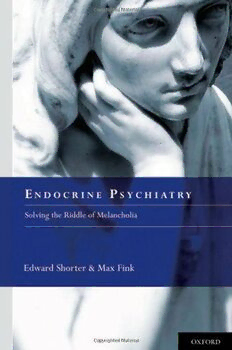Download Endocrine Psychiatry: Solving the Riddle of Melancholia PDF Free - Full Version
Download Endocrine Psychiatry: Solving the Riddle of Melancholia by Edward Shorter, Max Fink in PDF format completely FREE. No registration required, no payment needed. Get instant access to this valuable resource on PDFdrive.to!
About Endocrine Psychiatry: Solving the Riddle of Melancholia
The riddle of melancholia has stumped generations of doctors. It is a serious depressive illness that often leads to suicide and premature death. The disease's link to biology has been intensively studied. Unlike almost any other psychiatric disorder, melancholia sufferers have abnormal endocrine functions. Tests capable of separating melancholia from other mood disorders were useful discoveries, but these tests fell into disuse as psychiatrists lost interest in biology and medicine. In the nineteenth century, theories about the role of endocrine organs encouraged endocrine treatments that loomed prominently in practice. This interest faded in the 1930s but was revived by the discovery of the adrenal hormone cortisol and descriptions of its abnormal functioning in melancholic and psychotic depressed patients. New endocrine tests were devised to plumb the secrets of mood disorders. Two colorful individuals, Bernard Carroll and Edward Sachar, led this revival and for a time in the 1960s and 1970s intensive research interest established connections between hormone dysfunctions and behavior. In the 1980s, psychiatrists lost interest in hormonal approaches largely because they did not correlate with the arbitrary classification of mood disorders. Today the relation between endocrines and behavior have been disregarded. This history traces the enthusiasm of biological efforts to solve the mystery of melancholia and their fall. Using vibrant language accessible to family care practitioners, psychiatrists and interested lay readers, the authors propose that a useful, a potentially live-saving connection between medicine and psychiatry, has been lost.
Detailed Information
| Author: | Edward Shorter, Max Fink |
|---|---|
| Publication Year: | 2010 |
| ISBN: | 9780199737468 |
| Pages: | 208 |
| Language: | English |
| File Size: | 1.326 |
| Format: | |
| Price: | FREE |
Safe & Secure Download - No registration required
Why Choose PDFdrive for Your Free Endocrine Psychiatry: Solving the Riddle of Melancholia Download?
- 100% Free: No hidden fees or subscriptions required for one book every day.
- No Registration: Immediate access is available without creating accounts for one book every day.
- Safe and Secure: Clean downloads without malware or viruses
- Multiple Formats: PDF, MOBI, Mpub,... optimized for all devices
- Educational Resource: Supporting knowledge sharing and learning
Frequently Asked Questions
Is it really free to download Endocrine Psychiatry: Solving the Riddle of Melancholia PDF?
Yes, on https://PDFdrive.to you can download Endocrine Psychiatry: Solving the Riddle of Melancholia by Edward Shorter, Max Fink completely free. We don't require any payment, subscription, or registration to access this PDF file. For 3 books every day.
How can I read Endocrine Psychiatry: Solving the Riddle of Melancholia on my mobile device?
After downloading Endocrine Psychiatry: Solving the Riddle of Melancholia PDF, you can open it with any PDF reader app on your phone or tablet. We recommend using Adobe Acrobat Reader, Apple Books, or Google Play Books for the best reading experience.
Is this the full version of Endocrine Psychiatry: Solving the Riddle of Melancholia?
Yes, this is the complete PDF version of Endocrine Psychiatry: Solving the Riddle of Melancholia by Edward Shorter, Max Fink. You will be able to read the entire content as in the printed version without missing any pages.
Is it legal to download Endocrine Psychiatry: Solving the Riddle of Melancholia PDF for free?
https://PDFdrive.to provides links to free educational resources available online. We do not store any files on our servers. Please be aware of copyright laws in your country before downloading.
The materials shared are intended for research, educational, and personal use in accordance with fair use principles.

